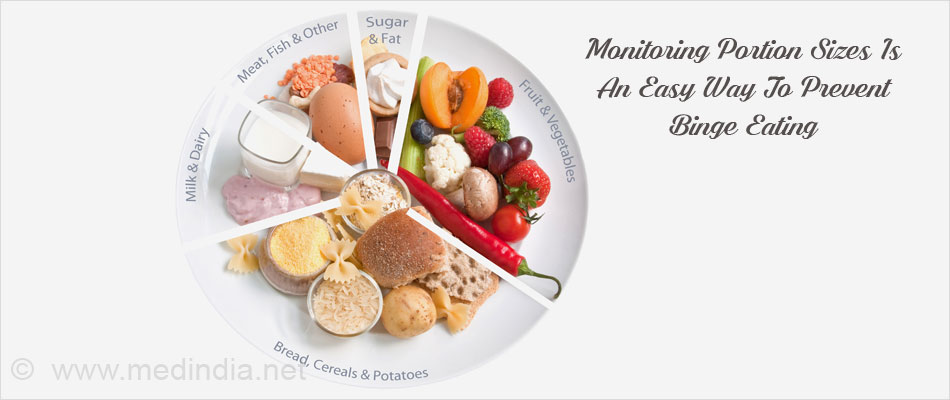- The neurobiology of overeating - (https://www.ncbi.nlm.nih.gov/pmc/articles/pmc3432807/)
- Eaten up by boredom: consuming food to escape awareness of the bored self - (https://www.ncbi.nlm.nih.gov/pmc/articles/pmc4381486/)
- Symptoms and causes of Binge Eating Disorders - (http://www.mayoclinic.org/diseases-conditions/binge-eating-disorder/symptoms-causes/dxc-20182932)
- Negative Effects of Over Eating - (http://www.healthguidance.org/entry/12344/1/negative-effects-of-over-eating.html)
- Portion Size and Obesity - (http://m.advances.nutrition.org/content/5/6/829.full)
- Breakfast Consumption Affects Appetite, Energy Intake, and the Metabolic and Endocrine Responses to Foods Consumed Later in the Day in Male Habitual Breakfast Eaters - (https://www.niddk.nih.gov/health-information/health-topics/weight-control/myths/pages/weight-loss-and-nutrition-myths.aspx)
- Digestion: How long does it take? - (http://www.mayoclinic.org/digestive-system/expert-answers/faq-20058340)
- Binge Eating Disorder - (https://www.nationaleatingdisorders.org/binge-eating-disorder)
- Bulimia Nervosa - (https://www.nationaleatingdisorders.org/bulimia-nervosa)
- Gut Hormones and Appetite Control: A Focus on PYY and GLP-1 as Therapeutic Targets in Obesity - (https://www.ncbi.nlm.nih.gov/pmc/articles/pmc3286726/)
- Weight-loss and Nutrition Myths - (http://m.jn.nutrition.org/content/141/7/1381.long?view=long&pmid=21562233)
- Obesity and Its Relationship to Addictions: Is Overeating a Form of Addictive Behavior? - (https://www.ncbi.nlm.nih.gov/pmc/articles/pmc2910406/)
What is Overeating?
Overeating means increased food intake even when one is not hungry, that is, the intake of calories is more than expenditure of calories. In other words, more food intake and less exercise. Many people do not understand the difference between actually being hungry and food craving. This is the main reason as to why people do not know when to stop eating.
Overeating further leads to weight gain and obesity, which is the root cause of various diseases such as type 2 diabetes mellitus, high cholesterol levels, cancer, heart diseases, osteoporosis, gall bladder disorder, pancreatitis, sleep apnea.

Types of Overeating
Emotional Overeating
Studies have found that people often associate food with mood. Happiness, sadness, anger and fear have found to affect eating responses. Emotional eating does not involve physical symptoms such as hunger. During this phase an individual tends to eat food that is high in fat, sugar and salt. Emotional eating is just the opposite of mindful eating and a person does not realize when to stop eating. Such people often connect food to their emotions.
Distracted Overeating
Not paying attention to what you eat can lead to #$#overeating#$#. Multitasking such as eating while working or driving, watching television or plugging into technology can distract you from mindful eating and may tend to make you overeat. The whole idea of eating is to eat slowly, enjoy the burst of flavors and watch your intake or portion size.

Binge Eating Disorder
This disorder is characterized by repetitive episodes of eating large quantities of food. A person with binge eating disorder eats food too quickly and to the point of discomfort. Self-control during the binge is completely lost and the person may experience guilt, shame or distress later.
This is a life-threatening and serious eating disorder which is characterized by a cycle of binging and self-induced vomiting to undo the effects of overeating or binge eating.
Causes of Overeating / Triggers for Overeating
Boredom
Boredom is an emotion that is associated with feeling restless and dissatisfied. Research has found that you may eat more when you are bored just to distract yourself. When a person is bored, there is a lack of interest and stimulation. Since eating distracts people, they eat when they are bored. Furthermore, boredom is associated with greater energy intake such as high consumption of fat, sugar, refined carbohydrates and proteins. Consumption of such energy dense food groups further give rise to obesity and other metabolic disorders. High levels of boredom increases temptations for unhealthy foods and reduces consumption of healthy foods.
Social Environment
Studies have observed that social environment has a huge impact on overeating and obesity. In other words, eating with your friends influences your eating behavior. Research shows that presence of companion or friends makes us eat more. We tend to spend more time with meal when eating with more people or large group as compared to eating alone.

Crockery
Large dinnerware causes us to eat more and trick us to believe that we have eaten less. More food can be served in large crockery. In this way the intake of calories also increases thus leading to obesity. Food that is served on large plate appears to be small and this can confuse a person easily about the right portion size. Whereas, the same amount of food when served in a smaller plate appears to be more and a person feels satiated soon.
Quick Eating
It is very well-known that eating slowly makes you feel full faster and eating too quickly does exactly the opposite. When the stomach is filled with food or water, stretch receptors present in the stomach get activated and sends signals to the brain. These signals connect the brain and the gut. Such an interaction between the two helps in the control of appetite and prevents binging. When one eats too quickly, this interaction does not take place efficiently because people may not give this system enough time to work.
Lack of Sleep
Sleeping for less number of hours is associated with binge eating, unhealthy food choices and weight gain. Inadequate sleep leads to release of chemical that enhances joy of eating foods that are high in sugar, fat and salt. Furthermore, when one sleeps less they tend to feel tired all throughout the day. The symptoms of tiredness are often mistaken for hunger and people gorge on junk food. Make sure you sleep for 6-8 hours everyday.

Symptoms of Overeating
- Eating large amount of food uncontrollably
- Eating even when not hungry or full
- Eating too quickly
- Eating frequently
- Eating excessive amount of particular food (for example- ice cream or chocolate)
- Feeling ashamed, guilty, embarrassed and upset about your eating
- Inability to stop eating
- Never experiencing satiation
How to Curb Overeating?
Self Control
When you feel like eating again and again stop for a moment and ask yourself if you are really hungry. Many times you may experience such a feeling even when you are not hungry, it can simply be a craving for food.
Control Stress Levels
Stress is the major cause of overeating. Learn de-stressing techniques such as yoga, meditation and deep breathing. Identify the stress factor and try to solve it. Once this is solved there will be no need for a person to binge.

Stop Fad Diets
To look lean and better people are often willing to do anything that promises quick weight loss. Fad diets have become popular because it promises quick weight loss through an unbalanced and restrictive diet. Many type of foods are omitted in this diet. Fad diets are too extreme and tough and people are unable to maintain this long-term. Thus, people give into food craving and temptation and end up overeating. Stop fad diets, stop overeating and starting eating a balanced and wholesome diet.
Diet Counseling
If you feel that you have some of the symptoms, it is important to meet a dietitian to help you overcome the issue.. A well-balanced diet plan and the importance of each food group can help you make better food choices.
Never Skip Breakfast
Eating breakfast daily is an effective strategy to stop overeating and to prevent weight gain and obesity. Individuals who skip breakfast tend to overeat during lunchtime. Omitting breakfast can result in increased consumption of foods later during the day. Snacking between the meals is increased when breakfast is not consumed. Along with increased caloric intake, food choices are also affected. Irregular breakfast eaters compensate by increasing the consumption of food later in the day.

Maintain a Food Journal
Truthful food entries can help you to stop overeating and also help you to shed some kilos. Writing about the type of food consumed, amount and timing can help you to plan a healthy eating pattern. You can identify the time when you are hungry and prepare healthy food in advance. You can track your amount of food intake and type of food you eat and make healthy changes accordingly. Though food journals are useful to make changes in the diet, sometimes you tend to feel low and begin starving so if you are overeating or binging in between meals, it’s not the end of the world. Just try to modify it.
Stay Hydrated
When you do not drink enough water you feel thirsty but your body may mistake thirst for hunger. These false hunger signals may lead to extra calorie intake and binge eating. Furthermore, when you are dehydrated you tend to feel tired. You may feel that this tiredness is because of hunger and thus you may end up eating more. Water is the best beverage that can easily quench thirst. Do not opt for soft drinks, sugar sweetened beverages and juices when thirsty.
Be Wise About Your Portion Size
A key environment driver of energy intake is #$#portion size#$#. Portion size is an excellent way to stop overeating and to prevent weight gain. Using larger than appropriate portion sizes can increase your caloric intake and lead to obesity. The more you are served, the more you eat. Therefore, start with small portion size, eat your food slowly and then add a little if still hungry.











